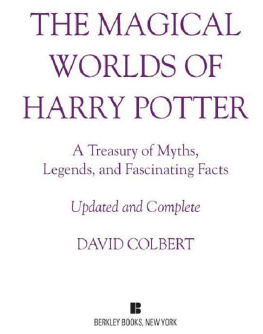THE PRINCE
By: Nicolo Machiavelli
Contents
INTRODUCTION
Nicolo Machiavelli was born atFlorence on 3rd May 1469. He was the second son of Bernardo di NicoloMachiavelli, a lawyer of some repute, and of Bartolommea di Stefano Nelli, hiswife. Both parents were members of the old Florentine nobility.
His life falls naturally into threeperiods, each of which singularly enough constitutes a distinct and importantera in the history of Florence. His youth was concurrent with the greatness ofFlorence as an Italian power under the guidance of Lorenzo de' Medici, IlMagnifico. The downfall of the Medici in Florence occurred in 1494, in whichyear Machiavelli entered the public service. During his official careerFlorence was free under the government of a Republic, which lasted until 1512,when the Medici returned to power, and Machiavelli lost his office. The Mediciagain ruled Florence from 1512 until 1527, when they were once more driven out.This was the period of Machiavelli's literary activity and increasing influence;but he died, within a few weeks of the expulsion of the Medici, on 22nd June1527, in his fifty-eighth year, without having regained office.
YOUTH
Although there is little recordedof the youth of Machiavelli, the Florence of those days is so well known thatthe early environment of this representative citizen may be easily imagined.Florence has been described as a city with two opposite currents of life, onedirected by the fervent and austere Savonarola, the other by thesplendour-loving Lorenzo. Savonarola's influence upon the young Machiavellimust have been slight, for although at one time he wielded immense power overthe fortunes of Florence, he only furnished Machiavelli with a subject of agibe in "The Prince," where he is cited as an example of an unarmedprophet who came to a bad end. Whereas the magnificence of the Medicean ruleduring the life of Lorenzo appeared to have impressed Machiavelli strongly, forhe frequently recurs to it in his writings, and it is to Lorenzo's grandson thathe dedicates "The Prince."
Machiavelli, in his "Historyof Florence," gives us a picture of the young men among whom his youth waspassed. He writes: "They were freer than their forefathers in dress andliving, and spent more in other kinds of excesses, consuming their time andmoney in idleness, gaming, and women; their chief aim was to appear welldressed and to speak with wit and acuteness, whilst he who could wound othersthe most cleverly was thought the wisest." In a letter to his son Guido,Machiavelli shows why youth should avail itself of its opportunities for study,and leads us to infer that his own youth had been so occupied. He writes:"I have received your letter, which has given me the greatest pleasure,especially because you tell me you are quite restored in health, than which Icould have no better news; for if God grant life to you, and to me, I hope tomake a good man of you if you are willing to do your share." Then, writingof a new patron, he continues: "This will turn out well for you, but it isnecessary for you to study; since, then, you have no longer the excuse ofillness, take pains to study letters and music, for you see what honour is doneto me for the little skill I have. Therefore, my son, if you wish to please me,and to bring success and honour to yourself, do right and study, because otherswill help you if you help yourself.
OFFICE
The second period of Machiavelli'slife was spent in the service of the free Republic of Florence, whichflourished, as stated above, from the expulsion of the Medici in 1494 untiltheir return in 1512. After serving four years in one of the public offices hewas appointed Chancellor and Secretary to the Second Chancery, the Ten ofLiberty and Peace. Here we are on firm ground when dealing with the events ofMachiavelli's life, for during this time he took a leading part in the affairsof the Republic, and we have its decrees, records, and dispatches to guide us,as well as his own writings. A mere recapitulation of a few of his transactionswith the statesmen and soldiers of his time gives a fair indication of hisactivities, and supplies the sources from which he drew the experiences andcharacters which illustrate "The Prince."
His first mission was in 1499 toCatherina Sforza, "my lady of Forli" of "The Prince," fromwhose conduct and fate he drew the moral that it is far better to earn theconfidence of the people than to rely on fortresses. This is a very noticeableprinciple in Machiavelli, and is urged by him in many ways as a matter of vitalimportance to princes.
In 1500 he was sent to France to obtain terms from Louis XIIfor continuing the war against Pisa: this king it was who, in his conduct ofaffairs in Italy, committed the five capital errors in statecraft summarized in"The Prince," and was consequently driven out. He, also, it was whomade the dissolution of his marriage a condition of support to Pope AlexanderVI; which leads Machiavelli to refer those who urge that such promises shouldbe kept to what he has written concerning the faith of princes.
Machiavelli's public life waslargely occupied with events arising out of the ambitions of Pope Alexander VIand his son, Cesare Borgia, the Duke Valentino, and these characters fill alarge space of "The Prince." Machiavelli never hesitates to cite theactions of the duke for the benefit of usurpers who wish to keep the statesthey have seized; he can, indeed, find no precepts to offer so good as thepattern of Cesare Borgia's conduct, insomuch that Cesare is acclaimed by somecritics as the "hero" of "The Prince." Yet in "ThePrince" the duke is in point of fact cited as a type of the man who riseson the fortune of others, and falls with them; who takes every course thatmight be expected from a prudent man but the course which will save him; who isprepared for all eventualities but the one which happens; and who, when all hisabilities fail to carry him through, exclaims that it was not his fault, but anextraordinary and unforeseen fatality.
On the death of Pius III, in 1503,Machiavelli was sent to Rome to watch the election of his successor, and therehe saw Cesare Borgia cheated into allowing the choice of the College to fall onGiuliano delle Rovere (Julius II), who was one of the cardinals that had mostreason to fear the duke. Machiavelli, when commenting on this election, saysthat he who thinks new favours will cause great personages to forget oldinjuries deceives himself. Julius did not rest until he had ruined Cesare.
It was to Julius II thatMachiavelli was sent in 1506, when that pontiff was commencing his enterpriseagainst Bologna; which he brought to a successful issue, as he did many of hisother adventures, owing chiefly to his impetuous character. It is in referenceto Pope Julius that Machiavelli moralizes on the resemblance between Fortuneand women, and concludes that it is the bold rather than the cautious man thatwill win and hold them both.
It is impossible to follow here thevarying fortunes of the Italian states, which in 1507 were controlled byFrance, Spain, and Germany, with results that have lasted to our day; we areconcerned with those events, and with the three great actors in them, so faronly as they impinge on the personality of Machiavelli. He had several meetingswith Louis XII of France, and his estimate of that monarch's character hasalready been alluded to. Machiavelli has painted Ferdinand of Aragon as the manwho accomplished great things under the cloak of religion, but who in realityhad no mercy, faith, humanity, or integrity; and who, had he allowed himself tobe influenced by such motives, would have been ruined. The Emperor Maximilianwas one of the most interesting men of the age, and his character has beendrawn by many hands; but Machiavelli, who was an envoy at his court in 1507-8,reveals the secret of his many failures when he describes him as a secretiveman, without force of characterignoring the human agencies necessary to carryhis schemes into effect, and never insisting on the fulfilment of his wishes.
Next page
![Machiavelli The Prince [2011 Intro, Forward]](/uploads/posts/book/253164/thumbs/machiavelli-the-prince-2011-intro-forward.jpg)









